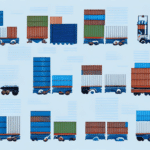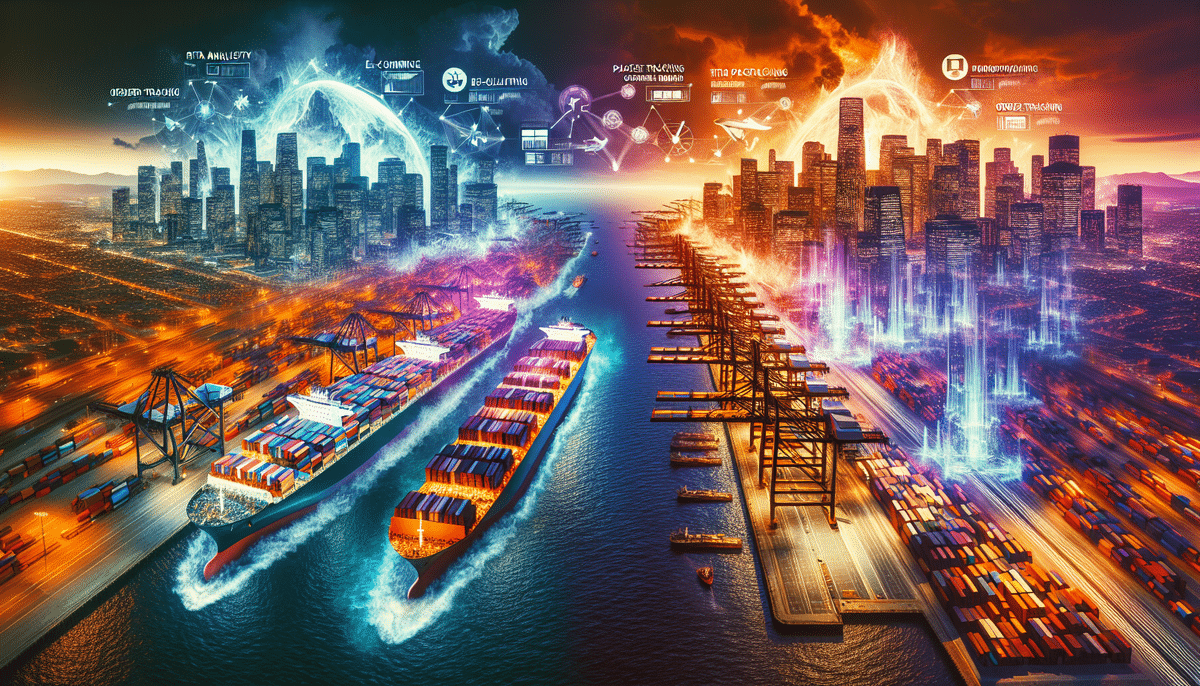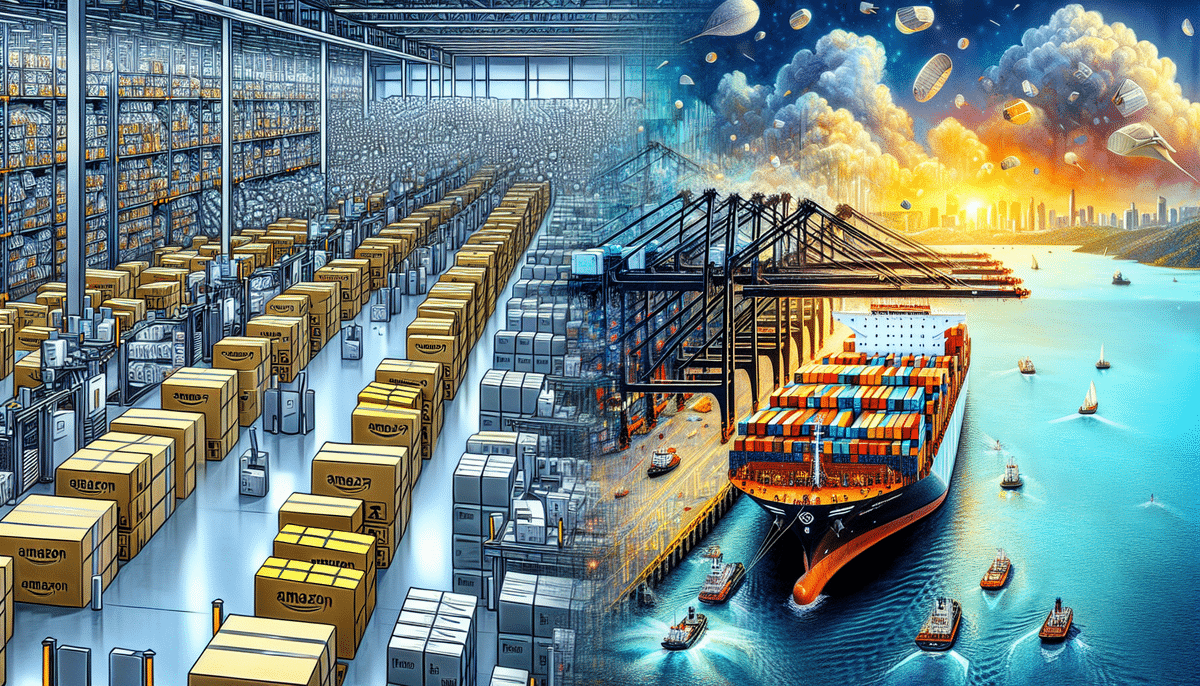Introduction: Outerspace vs Flexport in Modern Logistics
In today's globalized business environment, the logistics industry has become increasingly competitive, valued at over $8 trillion globally in 2023 according to the Statista report. Two companies that have gained significant attention in recent years are Outerspace and Flexport. These companies offer innovative solutions for businesses looking to streamline their supply chain operations. But which one is the better choice for your business? In this article, we provide a comprehensive analysis of Outerspace and Flexport, examining their business models, logistics services, technology, customer support, cost-effectiveness, and impact on global trade and commerce.
Business Models and Logistics Services
Outerspace is a logistics and freight forwarding company specializing in the transportation of goods using space-based assets, such as satellites. This unique approach allows businesses to track their shipments in real-time, reduce delivery times, and ensure greater transparency. On the other hand, Flexport is a technology-enabled freight forwarder that utilizes a cloud-based platform to provide end-to-end visibility and control over the supply chain. Features include automated customs clearance, digital document management, and supplier performance tracking.
Despite their differences, both Outerspace and Flexport share the common goal of improving the efficiency and transparency of the global supply chain. Outerspace's use of space-based assets offers a unique advantage in speed and coverage, while Flexport's technology platform allows for greater customization and control. The choice between these two companies depends on the specific needs and priorities of each business.
Technology and Innovation
Outerspace employs satellites to track shipments in real-time and utilizes algorithms to predict and prevent supply chain issues. This advanced technology ensures continuous shipment tracking, which is crucial for high-value or time-sensitive goods. Additionally, Outerspace is exploring blockchain technology to enhance supply chain transparency and security.
Flexport, on the other hand, uses a cloud-based platform enhanced with data analytics and machine learning to provide comprehensive visibility and control over the supply chain. Flexport leverages machine learning to optimize routes, predict potential disruptions, and identify cost-saving opportunities. Furthermore, Flexport is experimenting with drone technology for last-mile delivery solutions.
Both companies prioritize sustainability in their operations. Outerspace has implemented a carbon offset program to reduce the environmental impact of shipments, while Flexport partners with organizations to promote sustainable practices within the supply chain industry.
Cost-Effectiveness and Customer Support
Outerspace offers a premium solution with space-based tracking, which can be quite expensive. However, for larger shipments, Outerspace’s solution may prove more cost-effective in the long run due to reduced delivery times and increased efficiency. In contrast, Flexport's cloud-based platform is generally more cost-effective, especially for smaller shipments. Flexport provides a variety of resources and tools to assist clients in managing logistics operations effectively.
When it comes to customer support, Outerspace, with a smaller customer base, may provide more personalized support, ensuring that clients receive dedicated attention to meet their specific needs. Flexport offers a comprehensive support team available to assist users with any issues or questions, along with extensive online resources to guide clients through the platform and troubleshoot problems.
Impact on Global Trade and Commerce
Outerspace and Flexport are significantly impacting global trade and commerce by making shipping more efficient, faster, and affordable. Their solutions enhance transparency and accountability, helping businesses comply with regulations and maintain ethical practices throughout their supply chains. According to the UNCTAD World Trade Report 2023, advancements in logistics technology are critical for facilitating international trade and reducing barriers.
Outerspace’s real-time tracking reduces shipment risks and optimizes supply chains by identifying improvement areas and reducing inefficiencies. Flexport’s data-driven platform aids in decision-making and cost management, leading to significant cost savings and improved customer satisfaction. Together, they are driving improvements in global logistics, benefiting businesses and the broader economy.
Choosing Between Outerspace and Flexport: Factors to Consider
The decision between Outerspace and Flexport should be based on your business's specific needs. Key factors to consider include:
- Shipment Size: Large and bulky shipments may benefit more from Outerspace's specialized services.
- Tracking Accuracy and Speed: If real-time, precise tracking is critical, Outerspace may be the better choice.
- Budget: Flexport offers more cost-effective solutions, particularly for smaller shipments.
- Technology Integration: Flexport's platform provides greater customization and integration capabilities.
- Customer Support: Consider the level of personalized support you require.
Additionally, assess the level of customer support each company offers. Outerspace, with a smaller customer base, may provide more personalized support, while Flexport offers a wide range of resources and tools to assist clients in managing logistics operations effectively.
In conclusion, both Outerspace and Flexport are innovative leaders transforming the logistics industry. They offer unique solutions that can help businesses optimize their supply chain operations, making logistics more efficient, faster, and affordable. Assess your business’s specific needs by examining their business models, logistics services, technology, customer support, cost-effectiveness, and impact on global trade to make an informed decision on which company best suits your logistics requirements.






















